Q&A: Westcon CEO Dolph Westerbos On Splitting The Company, What Attracted Synnex, And Partner Perks
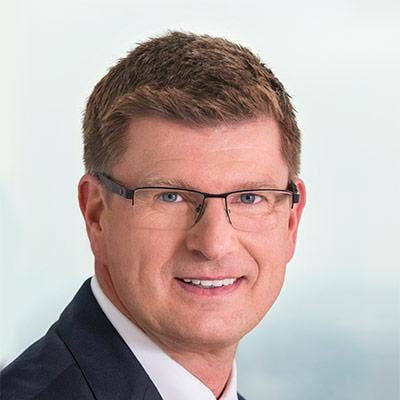
One Distributor With Two Homes
WestconGroup CEO Dolph Westerbos said that Synnex initiated acquisition discussions at a challenging time and that ideally he would have liked to have seen all of the Westcon-Comstor company kept together.
Synnex said Tuesday that it would pay up to $830 million to purchase Westcon's North American and Latin American operations, and take a minority stake in operations outside the Americas, which will still be owned by Datatec. The acquisition is expected to close next quarter.
Westerbos detailed to CRN the role he'll be playing once the deal closes, how Westcon Americas will be organized under Synnex, and what he expects to happen to Synnex's specialty distribution business.
He also dished on why the deal appealed to many of Westcon-Comstor's key vendors, how success will be measured, and how global customers will be supported once the company has different corporate parents in different parts of the world.
Read on to learn about the future of Westcon-Comstor.

Why was only part of Westcon sold to Synnex, with the rest retained under Datatec?
It's not the ideal situation. Ideally, it would have been the whole company. But we're just coming off an intense transformation journey – we just went live with SAP across the whole African continent last month, and a few months before that, we did all of Europe. There was just a lot of batting down that platform, the way of operating for us. And so to do another transaction for that same business would just be too much disruption after the journey they've already gone through.

What is the perceived value of Westcon International?
From a valuation point of view, we think there is such incredible value, particularly in the international business. All the hard work that we've done to make a consistent, repeatable, very compliant business with world-class tools and processes. At that moment in that part of the world, we just felt that it didn't quite give us the value that we really think it's worth. So for those two reasons, this became a deal like it is today, but with the very strong indication from both parties that this clearly gives Synnex a pathway to extend beyond the Americas at some future point. … We structured the deal where both companies will become mutual shareholders in the other company, mutual board positions. We really very much want to stay connected both strategically and even operationally with each other.

Did Datatec or Westcon-Comstor solicit acquisition offers?
It was not solicited from us. This was an unsolicited bid by Synnex a number of months ago. You could argue it wasn't quite an ideal time for Westcon-Comstor to be considered for an acquisition because we're just coming out a really intense and great business transformation journey over the last three years by moving more than 50-plus countries so far onto SAP and [business process outsourcing] in five continents. So just a massively intense journey.
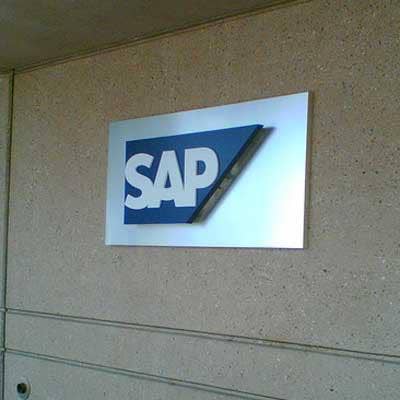
Where do things stand with the SAP implementation effort?
We just completed the last few implementations last month. So, as you can imagine, these kinds of transformation programs take a lot of energy and a lot of focus by folks, and not always have to be as strong externally as you'd like to be, because you put a lot of effort internally. As a result, our results have been not as strong this past year as you would have seen in the past. So, clearly not the right time generally for this kind of a discussion to start happening.

How will this work from an organizational and reporting standpoint?
If you look at my team, the two guys that are running the North America and Latin America business -- so that is Andrew Warren for North America, and Otavio Lazarini for Latin America – they will become part of the Synnex management team and part of Synnex. The rest of the management team -- the rest of my team- - will continue to report to me, and we will collectively run the Westcon International business.
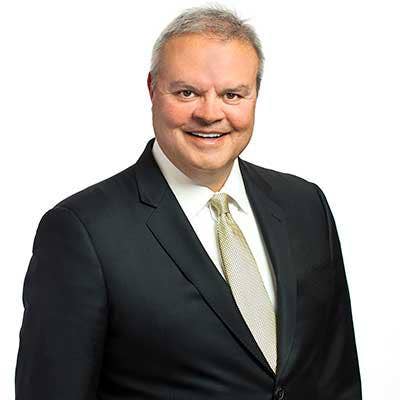
What individual, if any, is overseeing Westcon Americas?
Andrew Warren will report into Peter Larocque [pictured] – he's the president of the North America business at Synnex. He will be part of North America business. And Otavio [Lazarini] will report directly into the CEO seat, Kevin Murai. They do that because Synnex has no business in Latin America. It's a real stand-alone business for them. It's a real added business, and they're really keen to learn more about it so keeping it separate and stand-alone makes a lot of sense. Whereas in North America, Synnex has quite an infrastructure, so you want to make sure over time you can leverage some of that infrastructure for both the Synnex and Westcon-Comstor businesses. So Westcon-Comstor in North America will be run as a separate business unit within the North American business.

Does any overlap exist between the Synnex and Westcon Americas business?
There is some business within Synnex that feels very much like the Westcon-Comstor business. It's value-added specialty business, which is different than the majority of their business, which is a more high-volume business. That specialty business is envisioned over time to also move inside that Westcon-Comstor business unit. The specialty distributor business within Synnex will fall under the Westcon-Comstor brand.

Are there some Westcon executives who serve more than one region today?
You've got a number of the execs on my team in Weston International -- like David Grant, who looks after all of our global vendors, our global customers, and global deployment solutions -- who of course service both businesses, both the Westcon International business and the Westcon Americas business. And the same for Pedro Galatas -- he looks after our global services and our global cloud business, and so he supports both businesses.

How can those capabilities by protected with two separate parent companies?
Yes, we have those two entities. But those two entities will actually go to market with a single brand, so around the world the brand will be Weston-Comstor, whether it's in the Americas or whether it's in the International business. And then the global capabilities around customer and vendor management and coordinating solutions, we are retaining all those global capabilities, and they are going to be retaining inside Westcon International with Westcon Americas paying a management fee to Westcon International so that those services are going to be deployed across both entities. They're really working very hard to keep that single brand, single go-to-market motion, and single experience for our customers and our vendors intact.

What capabilities will Westcon America be paying Westcon International for?
What makes Westcon-Comstor is the global capabilities that, frankly, no one in the industry has. Our ability to do global coordination around the world. We have a large customer set which are our global SP and telco providers that we have global sourcing arrangements with. A global vendor management system. These are capabilities that have taken us years to create and are highly valued, and so the deal is struck specifically to protect those global capabilities. … A lot of what we do is global deployment. We did about $6 billion of revenue last year, and about $900 million of that is spent with global customers that have global procurement arrangements with us. Think of the companies like AT&T and Verizon. … They look for a single supply chain partners to do large global deployments for their customer programs.

Could you provide an example of how this works?
They might have Johnson & Johnson as a customer that needs to be fulfilled across 60-plus countries. That is very complex for a company like AT&T, so they then have us act as the program manager across that effort. And then it's run out of a central team in the U.K. We've got some people in other regions as well. It's a hugely complex business, as you can imagine – the import, the export, tax optimization, making sure we get the IT reclaimed, local billing, even though it falls under a global contract. So that coordination is a pretty special skill, and so that is one of the special services Westcon Americas pays Westcon International for.

How will Westcon Americas and Westcon International coordinate?
It's the same way we do it today. We operate in four regions today, and we have these overlay support teams with all of these global capabilities. And they support four different regions today. If there is a global AT&T program that needs to be deployed, they will talk to Latin America, APAC, maybe Europe, certainly North America in this case. Those teams all stay in place, and they will all continue to support the regions. The only difference is that two of our regions have a different ownership structure. Those regions will continue to pay for those services, and those services will continue to be deployed globally. So, in that sense, we see it really as two entities, but one go-to-market motion.

What does the deal mean for Westcon-Comstor's North American partners?
If I think of the Westcon-Comstor partners, what Synnex brings is a very strong brand in the commercial and SMB space. That is, of course, appealing to the Westcon vendors, as you can imagine. Palo Alto [Networks] offers endpoint security solutions that's very much of interest to that kind of a market segment, and that's not the kind of market segment we've traditionally served here. Same thing with Symantec. We've focused more on the enterprise side, but there's a big part of Symantec that focuses on the SMB and the commercial space. And that is where Synnex has courted them quite successfully.

How will this acquisition help in the cloud?
I think of Microsoft. Synnex has a very strong relationship in Microsoft, particularly with cloud around Azure and Office 365. Every one of the Westcon-Comstor partners that we deal with today needs help moving to the cloud, and needs tie-ups with the likes of Azure and AWS. We at Westcon-Comstor in Canada just launched an exclusive AWS distribution relationship. So that's very exciting. But we don't have that same relationship with North America with Azure. And that is what Synnex brings. Our customers -- at least if they're in Canada -- now have a choice between going with AWS or with Microsoft. And here in the U.S., now Microsoft becomes a key enabler for them.
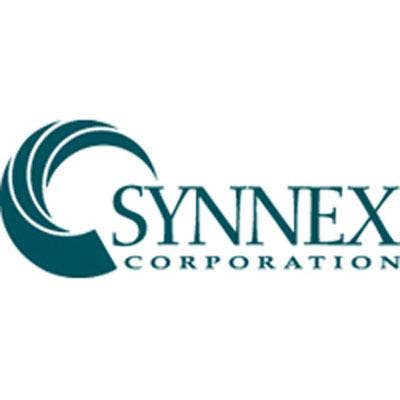
Are there any other strengths Synnex brings to the table?
Another part of the portfolio that might be of interest to our partners is the strength that they have in enterprise computing. They're a very large partner with HPE, Dell and Lenovo on both the storage and the compute side. Although we don't play in that space, many of our customers, however, still have requirements for those kinds of solutions. They would have, in the past, had to go to different partners, and now they could conceivably go to one. I think that's of interest.

What does the deal achieve for Synnex partners?
From Synnex's point of view, I think there, it's really quite obvious. We've got such a phenomenal footprint in both UCC communications and security, as well as, of course, our relationship with Cisco. Those have not been strengths for Synnex in the past. For all of Synnex's customers now, to be able to help them with the best-of-breed technology solutions in security UCC, security, [Active Global Support] and networking. They now have access to Cisco, which is one of the major players Synnex didn't have access to before. There's just a lot of benefit from[a complementary viewpoint] to both of our partners.
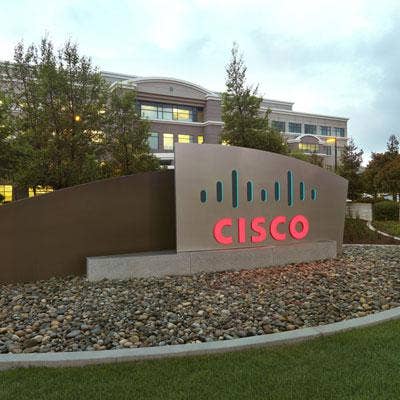
What's the opportunity for Synnex partners around Cisco?
There is an opportunity there for partners that would not have had access to that portfolio to have access to that portfolio. But it's not just about that. If I look at some of the other strengths Synnex brings to bear, they have a very solid cloud business here in North America. They also have a very significant public business in North America … split about half and half between federal and SLED. That is very substantial. You can imagine that for a company like Cisco, that's very appealing. There's a lot of opportunity there.

How in demand is Infrastructure-as-a-Service among your existing partners?
I think they're going to accelerate it. We just started our relationship with AWS up in Canada, so it's very much in its infancy. Although our relationship with Microsoft on the cloud side, on the Azure side has been very strong in other regions around the world – in Latin America, across Africa, and now in Europe. … In North America, it's been kind of a slower boat. This is where Synnex already has some great capabilities, so I think it will accelerate it in that regard.

How did this deal come together?
Synnex approached us and ... saw the promise of the business foundation from a consistency, visibility and compliance standpoint, operating in all of these various countries in a more consistent way. They actually saw the value in the work that we've done, looked at the go-forward performance, and then offered a premium on top of that. They came to us with a proposition timed in a way where we thought, 'No, this was never going to happen.' But they saw that value in the business, and that got us really interested.

How do Synnex and Westcon Americas compare?
Synnex is such a complementary competitor to us. You can think of a number of tie-ups in the industry where there would be a lot more overlap – overlap in markets, overlap in customers, overlap in technologies. And this is not the case here. There is almost no overlap. So this is very complementary, and that has us very attracted to the deal as well. Rather that this becoming kind of an internal integration effort, it becomes more of a revenue opportunity for the deal rationale. So that is what got us interested, more so than anything else.
How will this deal impact the industry as a whole?
This is changing the distribution landscape quite significantly here in North America. It is making a very key play here. The mix of the value and specialty distribution with the strength and breadth that Synnex brings will be a really good dynamic for the whole industry here in North America.

How will you meld Synnex's broadline and Westcon's specialty philosophies?
That's precisely the reason why it's going to run as a separate business unit within Synnex, and why it is under a separate brand. That's why there's a strong commitment to maintaining that specialty, value-add go-to-market strategy. This is, of course, a path for Synnex to go up the stack. It's been a path they've been on already in a number of relationships that they've had. But this just accelerates that. But they realize it is a different business, and that is why they're going to be running it as a separate business unit, and a separate go-to-market. It's also the reason we stay so connected between the international piece and the Americas piece, to make sure that the DNA in terms of how we support those very different technologies and customers in a different way stays very well connected.

What, if any, back-end support can Synnex provide for Westcon Americas?
On the back end, there is of course opportunity for leverage. Although we're committing to our customers that the brand and the go-to-market and all the people that are market-facing, all of that stays as is. From the back end in North America, you can imagine that over time, there is a real opportunity over time for Synnex to support the Westcon-Comstor business in a more scalable way than we would have been able to do ourselves. They've got phenomenal, they've got phenomenal procurement solutions, they've got phenomenal support for credit. So, over time, you could see that the back office will probably become more integrated.

What metrics would signal to you that this acquisition has been successful?
That our vendors and our global customers – the likes of AT&T, IBM, Verizon – that they all feel that are transacting with a global partner seamlessly and that the integration has gone seamlessly. It's the quality of the global engagement. … There is no cost rationalization logic behind the deal. This is all about bringing two very complementary businesses together. There is a tremendous amount of revenue leverage opportunity. All of our messages are around growth. Are we growing our existing partner vendors faster than we have done in the past, both on the Westcon side and on the Synnex side? … We really think this will accelerate growth way more than we could have done separately and independent from one another.
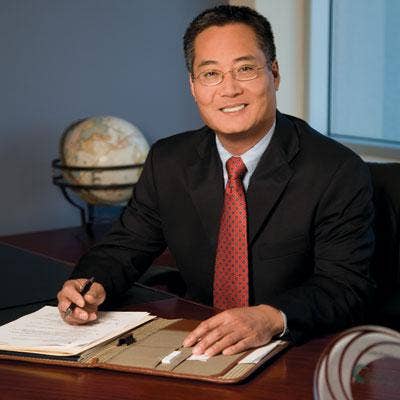
How well do you know the leadership team at Synnex?
Kevin Murai [pictured], my counterpart at Synnex, and I both know each other well. We both sit on the executive board of the GTDC – the Global Technology Distribution Council – so we meet each other twice a year. We've done that for the last number of years now. He is just a really class-act guy. He's not an ego guy; he's very pragmatic. A great, open, transparent culture. How can we solve things? There's not a lot of politics around it at all. And that matches not only my personal culture, but also the culture of Westcon-Comstor as well. There is just a really nice synergy. Culturally, in the way we think, the leadership teams are very well aligned.

What will the situation look like from an ownership perspective?
In that sense, it's a shareholder shift. Datatec – which is currently the majority shareholder in the Americas business – will become the minority shareholder. And Synnex, of course, in the minority. And on the international business, it's switched. Synnex will become a minority shareholder, and Datatec stays as the majority shareholder. We see it more as we have two others of the business now. We used to have one – Datatec. And now we have two – Datatec and Synnex. And they have varying shareholder positions in the business, but we continue to go to market as a very joined up team.

How will things work if Synnex and Datatec have diverging viewpoints?
It's true with any organization. You have a multitude of shareholders, and not every shareholder will have exactly the same objectives. And so, through the board process, we'll have both Synnex and Datatec represented in both entities. This is where you really forge the strategy of the organization, and if there are differences of views or priorities, that's where you work them out. We don't see it as two different masters – we see it as two different shareholders in that regard.